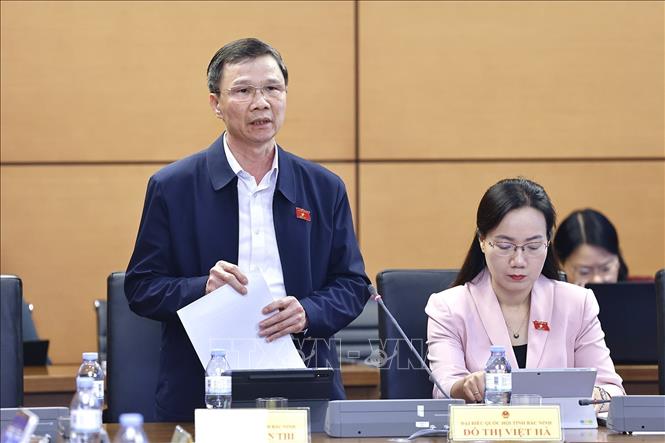
Giving opinions for discussion, many delegates highly agreed with the draft Political Report, affirming that the Draft has many new points, including some outstanding new points such as: The theme of the 14th National Party Congress affirms the aspiration for strong development, strategic autonomy, self-reliance, self-confidence, and strong progress in the era of national growth...
Discussing in the group, delegate Nguyen Van Thi (Bac Ninh) said that the Draft Action Program to implement the Congress Resolution stated "Perfecting mechanisms and policies to strongly develop digital agriculture , green agriculture and circular agriculture; policies to manage and use rice-growing land reasonably and flexibly...".
According to the delegate, it is necessary to continue to determine the "minimum rice growing area" of the country to "ensure food security". And it is necessary to plan key rice growing areas that must be strictly protected for wet rice cultivation, along with synchronous and appropriate infrastructure investment; the remaining area is allowed to be converted to other purposes in accordance with the planning and land use plan of each locality to improve land use efficiency.
“I think it is necessary to review the phrase 'flexible use of rice-growing land' in the Draft, which means temporarily converting rice-growing land to other purposes, and when necessary, it can be used again for rice cultivation,” delegate Nguyen Van Thi commented.
Explaining this content, according to the delegate, this solution is not feasible and in practice, almost no rice area that has been converted to other purposes has been used to grow rice again because the land for growing rice has its own characteristics and requirements in terms of structure, soil microorganisms and especially, it is necessary to have a plow base layer to retain water and keep mineral fertilizers from being washed down to the deep layer. Land that has been converted to other purposes, including converting to growing fruit trees, has its structure broken, making it very difficult to convert back to growing rice.
“It is recommended to review the above phrase. There needs to be appropriate orientation to protect the minimum rice land area nationally and locally to ensure food security,” the delegate said.
Regarding the target of "maintaining forest coverage at 42%" stated in the Draft, the Bac Ninh delegate said that we should not stop at the coverage rate but also pay attention to the quality and effectiveness of coverage; there should be solutions to maintain the natural forest ecosystem and improve forest quality. Because the structure of the layers of vegetation, carbon absorption, rainwater retention, and the risk of landslides, flash floods, and flash floods of natural forests are much higher than those of planted forests. Therefore, the delegate suggested solutions to maintain the stability of the existing natural forest area, and at the same time have policies to promote enrichment and improve the quality of natural forests.
“It is recommended to emphasize this content in the Draft and Action Program to implement the Resolution along with other synchronous solutions. At the same time, institutionalizing the Resolution and creating a legal corridor for implementation is extremely important. This needs to be strictly controlled by the Government and the National Assembly to avoid the situation of loosening regulations and overlooking environmental protection for short-term economic development goals,” the delegate said.
Expressing agreement with the Draft Political Report and the need to widely collect opinions from the people to the National Assembly, delegate Tran Thi Van (Bac Ninh) said that the Report needs to continue to emphasize the need to innovate the growth model, strongly shifting from extensive to intensive development, based on science and technology, innovation and digital transformation. It is necessary to form a national innovation ecosystem, support businesses to invest in research, transfer technology, develop data infrastructure, AI and encourage entrepreneurship among young people.
“After nearly 40 years of innovation, the size of our economy has increased 20 times, with GDP in 2024 reaching about 476.3 billion USD, among the 40 largest economies in the world. However, the quality of growth is still mainly based on resource exploitation, cheap labor and capital investment, while the content of technology, innovation and endogenous productivity is still low. Vietnam's labor productivity is only about 60% of Thailand's, 40% of Malaysia's and 10% of Singapore's,” said delegate Tran Thi Van.
According to delegate Tran Thi Van, developing new economic sectors, green economy, digital economy, and circular economy is an inevitable trend. This is also the wish that many people and businesses in Bac Ninh have expressed when commenting on the draft. The world is entering a period of strong green transformation and Vietnam cannot be outside that trend.
It is necessary to identify the green economy as a new growth engine that both creates development space and reduces environmental and climate risks. Along with that, it is necessary to issue and implement preferential policies for renewable energy, green transport, green construction and circular agriculture. Promote the transition from consumptive industrial production to low-emission industry; at the same time, it is necessary to strongly develop a circular economy that recycles, reuses, reduces plastic waste, and moves towards a zero-waste, environmentally friendly economy.
“This is not only an environmental issue but also an opportunity to form new industries and businesses, creating sustainable jobs,” delegate Tran Thi Van affirmed.
Delegate Nguyen Quang Huan (Ho Chi Minh City) expressed his agreement with the Draft and said that in the Action Program, in Appendix 5, Summary of Party building work during the 13th Congress term and directions, tasks, and solutions for Party building work during the 14th Congress term, there is a paragraph "Pay attention to leading and directing the building and development of Party organizations and socio-political organizations in the non-state enterprise sector, especially private enterprises and foreign-invested enterprises".
The delegate proposed to change the phrase "private enterprise" to "private sector enterprise" because, according to the delegate, non-state enterprises under the provisions of the 2020 Enterprise Law are enterprises in which the State does not hold shares or controlling capital contribution, i.e. less than 50% of charter capital, or does not have State capital contribution.
Also according to delegate Nguyen Quang Huan, regarding breakthroughs in science, technology development, innovation and national digital transformation, the Draft states "Creating a favorable environment for the private sector to trust and be willing to participate in investment, scientific research and technology development". According to the delegate, it is necessary to add the idea: "Strengthening the development of applied science and eliminating the mechanism of scientific research according to orders".
Source: https://baotintuc.vn/thoi-su/can-co-dinh-huong-bao-ve-dien-tich-dat-lua-toi-thieu-cua-quoc-gia-20251104174737126.htm


![[Photo] Opening of the 14th Conference of the 13th Party Central Committee](https://vphoto.vietnam.vn/thumb/1200x675/vietnam/resource/IMAGE/2025/11/05/1762310995216_a5-bnd-5742-5255-jpg.webp)





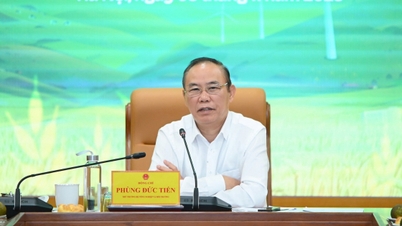

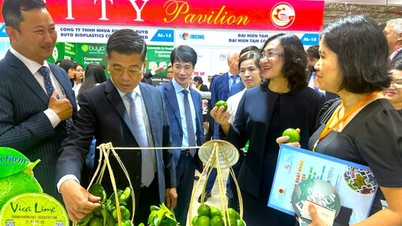

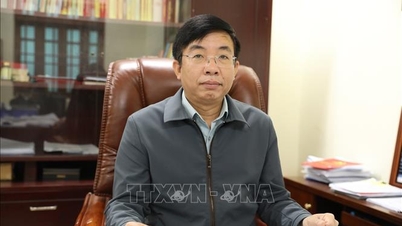
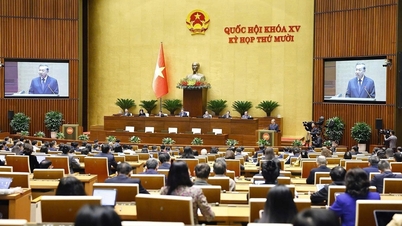

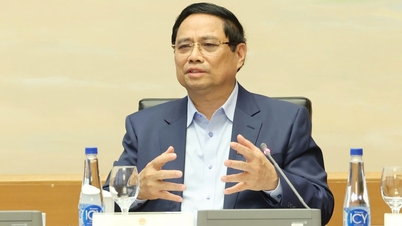
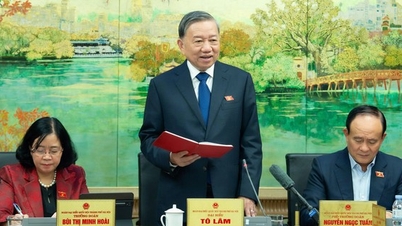

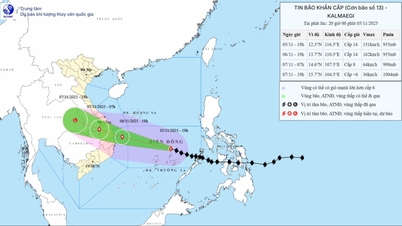
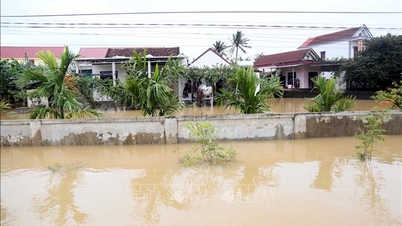

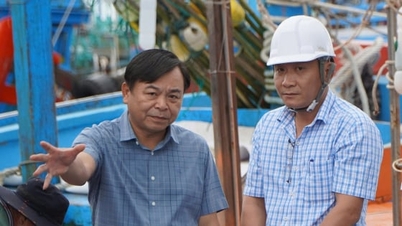
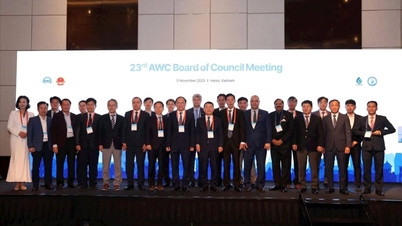
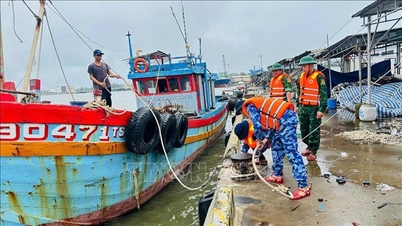





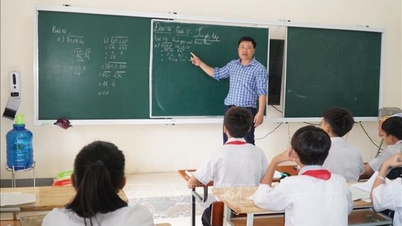
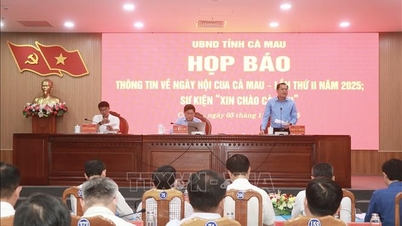


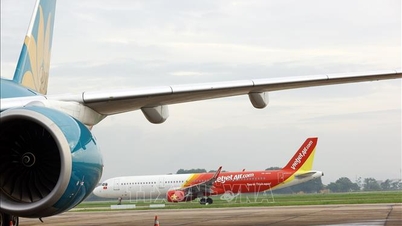

![[Photo] Panorama of the Patriotic Emulation Congress of Nhan Dan Newspaper for the period 2025-2030](https://vphoto.vietnam.vn/thumb/1200x675/vietnam/resource/IMAGE/2025/11/04/1762252775462_ndo_br_dhthiduayeuncbaond-6125-jpg.webp)

















































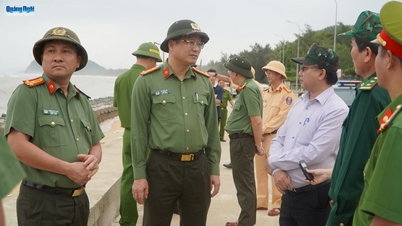
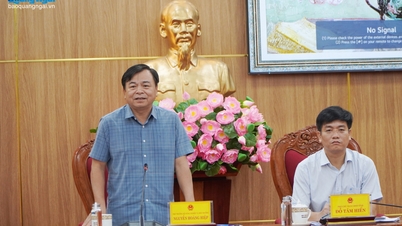


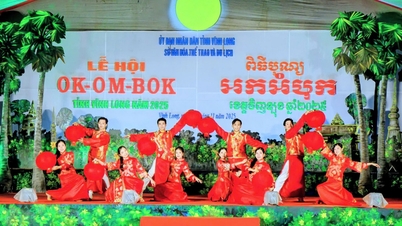















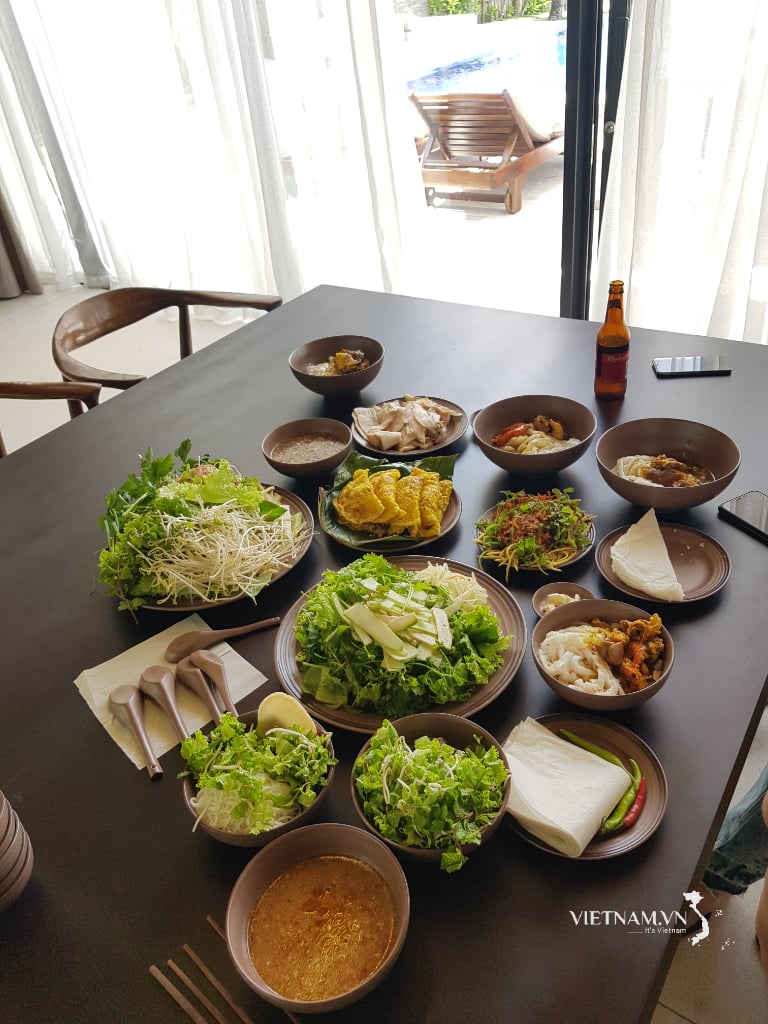


Comment (0)